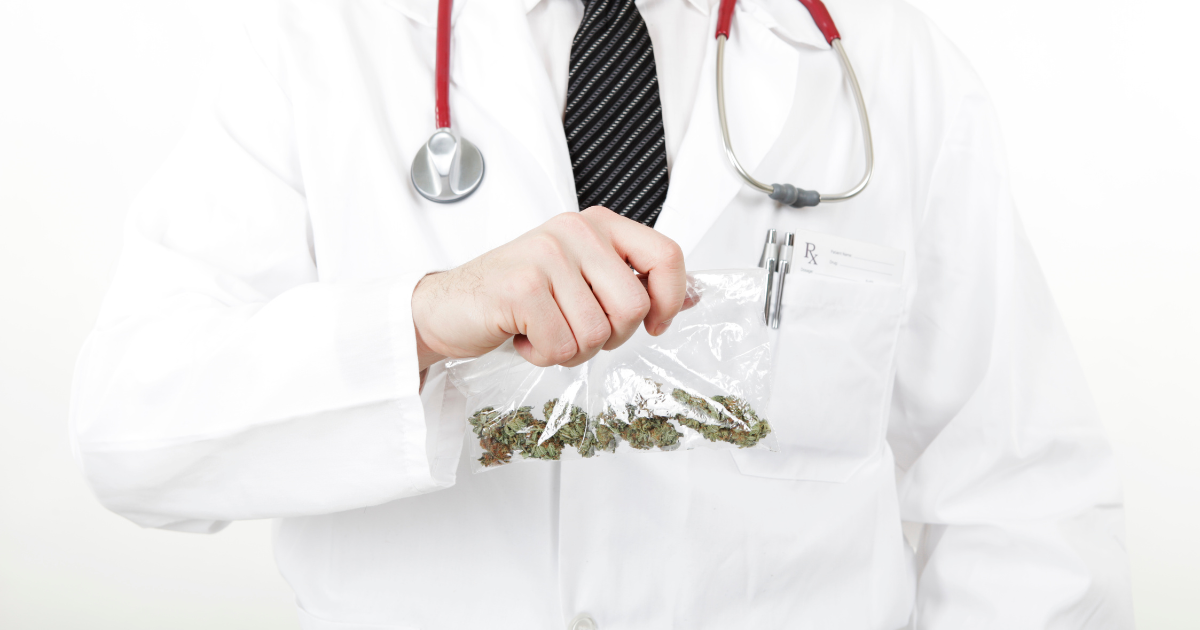Yes, people seek treatment for weed addiction. Despite its legalization and popularity in the United States, regular marijuana use can affect attention and memory, the CDC says, and also lead to dependence and addiction. Studies estimate about three in 10 marijuana users have marijuana use disorder, with a 10% likelihood of addiction.
Key points in this blog:
- People seek treatment for marijuana addiction because it can lead to dependence and addiction that affects their lives.
- Marijuana addiction treatment involves detoxification and behavioral therapies to help people understand and cope with their habits.
- Ongoing treatment and aftercare programs are essential for maintaining sobriety and a healthy lifestyle after completing marijuana rehab.
What is Marijuana?
Marijuana, also known as weed or cannabis, is a greenish-gray mixture of the dried flowers of Cannabis sativa. This plant-based substance contains mind-altering ingredients, mainly tetrahydrocannabinol (THC). THC is the active chemical that produces the characteristic ‘high’ when the marijuana is smoked, vaped, or ingested as edibles. Some people use marijuana for its pleasurable high, which can lead to harmful effects and dependence.
Is Weed Addictive?
Contrary to popular belief, marijuana can be addictive. The National Institute on Drug Abuse (NIDA) found that around 9% of users become addicted, with higher rates (17%) among teenage users. Dr. Jason Kirby, DO, MBA, FASAM, Landmark Recovery’s chief medical officer, warns, “When someone relies on the effects of cannabis to help them relax or cope with the stresses of everyday life they run a high risk of developing a use disorder.” Prolonged and heavy use of marijuana can lead to the development of marijuana use disorder.
What is Marijuana Use Disorder?
Marijuana use disorder is a chronic condition characterized by obsessive marijuana use despite negative health and social consequences. It significantly impacts daily life, relationships, and personal health. Cannabis is classified as a Schedule I drug under the Controlled Substances Act (CSA) due to its high abuse and addiction potential and lack of accepted medical use at the federal level.
Symptoms of Marijuana Use Disorder
You may have a marijuana use disorder if you experience the following symptoms.
- Strong urges to use marijuana
- Unsuccessful attempts to quit
- Ignoring responsibilities
- Legal trouble
- Relationship issues
If you or a loved one exhibit these symptoms, it might be time to consider rehab for marijuana. You’re not alone, and help is available. Call 888-448-0302 today to speak to a confidential Patient Navigator at Landmark Recovery.
Marijuana Withdrawal
When you stop using marijuana after long-term use, you may experience the following withdrawal symptoms.
- Irritability
- Trouble sleeping
- Changes in appetite
- Anxiety
- Strong cravings
Seeking professional help from medical detox and behavioral therapy programs can provide effective strategies for managing these symptoms and supporting your recovery journey.
An Expert Perspective
Dr. Kirby stresses the need for research into weed’s safety and usefulness. In his blog on marijuana legalization, Dr. Kirby states, “We must proceed with caution, and view marijuana as the habit-forming, addictive drug that it is… I hope to see science guide this issue, not politics or stigma, moving forward as a country.” This highlights the importance of understanding marijuana’s addictive potential and using evidence-based approaches in treatment.
Why Go to Weed Rehab?
People seek rehab for weed due to the following:
- Regular, repeated marijuana use
- Understanding the health and social risks but finding it hard to quit
- Withdrawal symptoms
- Problems in various areas of life
Weed addiction is real and can have serious consequences. It’s important to recognize the gravity of the situation and consider rehab if stopping seems impossible.
How Weed Rehab Works
Weed rehab follows a similar approach to other substance abuse treatment programs. It normally begins with medical detox to remove THC from the body. The core treatment includes behavioral therapies like cognitive behavioral therapy (CBT), family counseling, life skills classes, and support groups. These therapies and classes help people understand their addiction, develop coping strategies, and stay encouraged to stay sober.
Life After Weed Rehab
After rehab, ongoing care is crucial for long-term recovery. The focus shifts to relapse prevention and maintaining progress—aftercare programs like support groups, therapist check-ups, medication, and healthy lifestyle support long-term sobriety. Landmark Recovery offers aftercare resources, including our alumni network and Recovery Coaching Programs, to help patients stay connected and supported on their recovery journey.
Marijuana Rehab Cost and Insurance Coverage
The cost of marijuana rehab varies based on treatment type, length, and location. Many insurance plans cover a portion of rehab programs. If you need more clarification about your coverage, fill out our insurance verification form to see if you’re covered for treatment.
Start Rehab for Weed Near You
As Dr. Jason Kirby points out, “Cannabis, whether we like it or not, is present in our society and it’s not going away. We must continue to mold policies in our field based on the science at hand.” If you or a loved one are struggling with marijuana addiction, contact Landmark Recovery.
Our expert medical team understands the challenges and can provide the support you need. Call our confidential admissions line today at 888-448-0302. Find the closest marijuana detox or inpatient/outpatient treatment center on our locations page.
Learn More
If you found this article helpful, check out these related resources:
- How to Get Into Rehab Immediately
- Is Marijuana Addictive?
- Does Weed Make You Stupid?
- Is Recreational Drug Use Higher In The Summer?
- Can I Mix Melatonin & Marijuana?
- Does Marijuana Improve Athletic Performance?
- The Dangers Of Alcohol & Marijuana Use For Teens
- Dangers of Combining Percocet and Weed
- When is Residential Treatment Necessary?
- Can You Have Your Phone In Rehab?

Choose Recovery Over Addiction
We're here 24/7 to help you get the care you need to live life on your terms, without drugs or alcohol. Talk to our recovery specialists today and learn about our integrated treatment programs.




